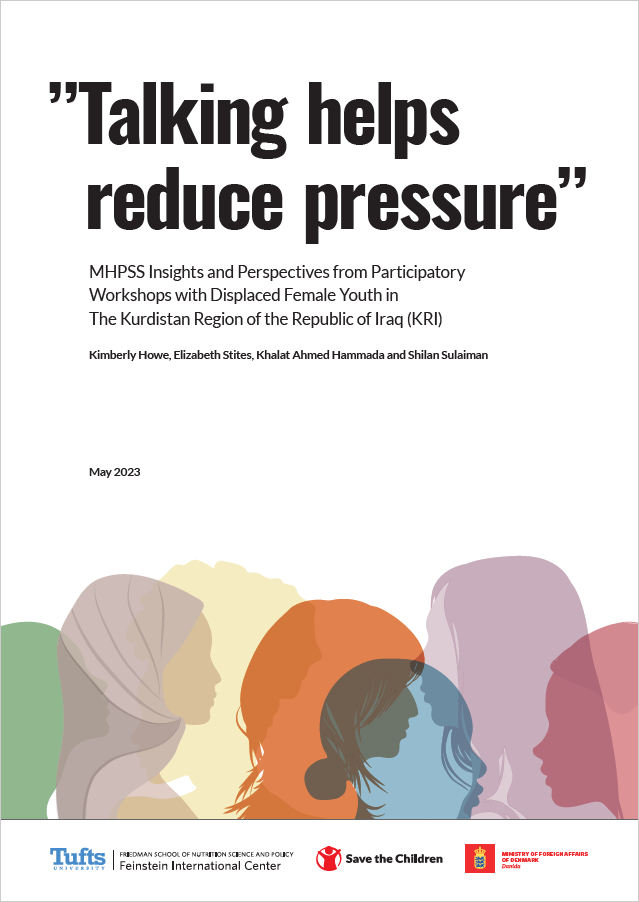This report provides details on a series of workshops supported by Save the Children Denmark and Save the Children Iraq held in Dohuk, Kurdistan Region of Iraq (KRI) in November 2022. The workshops were led by a team of researchers from the Feinstein International Center (FIC) at the Friedman School of Nutrition Science and Policy at Tufts University, including two local female researchers fluent in Kurdish and Arabic.
These workshops serve as follow-on to the Leave No One Behind (LNOB) study — a joint research endeavor between Save the Children Denmark and FIC’s research program on Early Marriage in Conflict and Displacement.
This report begins with brief backgrounds on both the LNOB study and the Dohuk workshops, and then provides an overview of findings from the workshops and associated discussions held with male community members. The report ends with suggestions for possible pilot interventions building upon the workshop findings.







